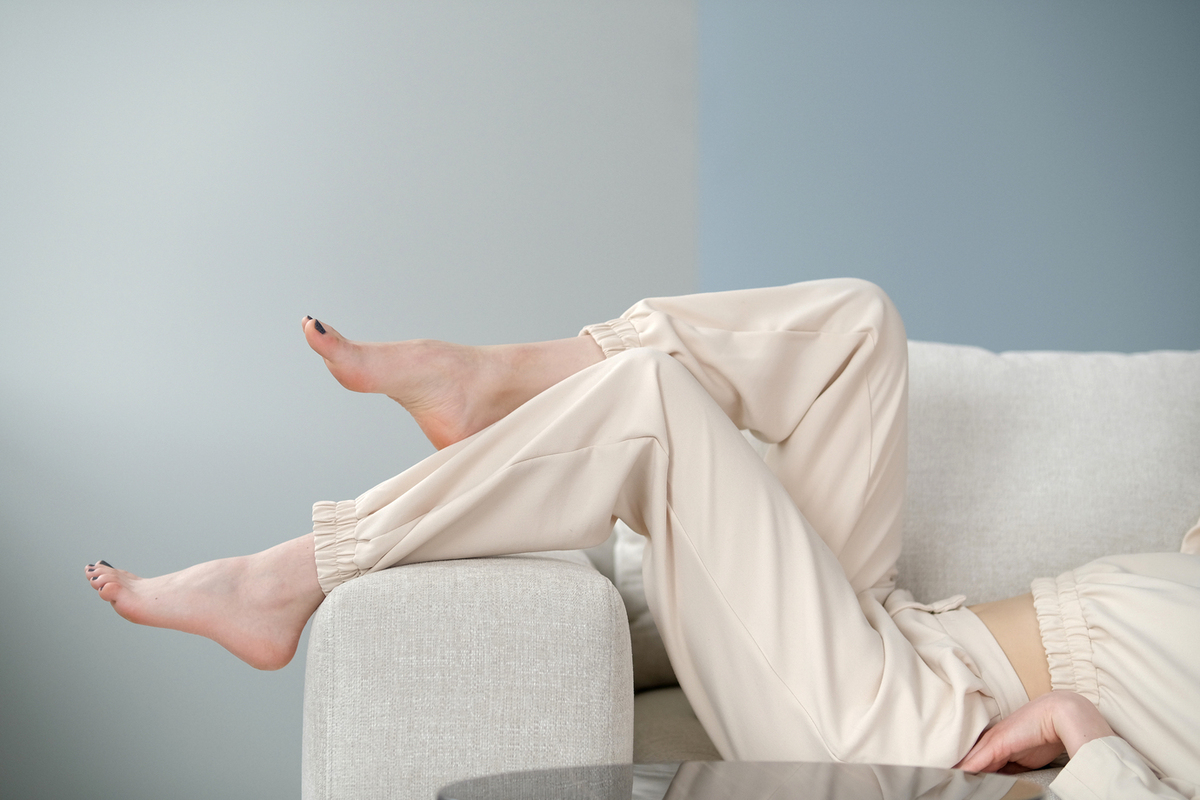If there's one thing you learn traveling the world, it's this — every culture has a unique way of doing things, and those tiny little habits you've taken for granted all your life will be considered weird, disgusting, offensive, or all of the above somewhere in the world. If you want to travel the world, or even just comfortably interact with people from different cultural backgrounds, it's essential to leave your judgment at the door.
What about your outdoors shoes, though? Should those also be left at the door?

If you're American, Dutch, or British, the answer may very well be "no". In fact, some insist that wearing shoes gets you in a professional mood. I once joined a tidying guru's program to help me become better at housekeeping, only to immediately be confronted with FlyLady's cardinal role — wear lace-up shoes in the house.
"You act differently when you have clothes and shoes on. You are more professional," the American FlyLady said; and she insisted on "lace-up" shoes because "they are harder to take off".
If you're Austrian, Russian, Korean, or Bosnian, you're going to be judgy about that, because leaving your outdoor shoes behind as soon as you come home, and sometimes even when you get to school or the office, is already second-nature to you. This article isn't for you, because you're already practicing what we preach here.
1. Wearing Your Outdoor Shoes in the Home Creates a Germy Environment
Think of the top five most disgusting parts of your body right now, and your feet are bound to end up on the list. Here's the thing — despite the fact that feet get rather sweaty and germy, and that they're often affected by fungal infections, the inside of the shoes was found, in one study, to be much cleaner than their outside. In fact, the portion of the shoes that constantly contacts the rest of your environment, was found to be a 140 times (!!!) germier than the inside.
Not scary enough? Consider this:
- 96 percent of shoes feature harmful coliforms, a type of bacteria.
- E. Coli bacteria were found to be present on 27 percent of shoes, mostly thought to originate from (yikes) public bathrooms.
- Clean surfaces became contaminated after contact with shoes in 90 to 99 percent of all cases.
- 40 percent of shoes are contaminated with Clostridium difficile, a bacterium that causes a severe form of diarrhea.
- Because of the unique microbial footprint walking in shoes produces, shoes become as valuable to forensic investigators as fingerprints. They're just as distinguishable, too.
- More recently, wearing outdoor shoes in a variety of spaces has been implicated in facilitating the spread of COVID-19 in a Chinese study.
- Over half of doctor's shoes were contaminated with MRSA after doing hospital rounds.
When you keep wearing your outdoor shoes inside the home, all the germs that they harbor come inside, too. Why is that a problem? You may not eat off the floor, but how likely are you to pick a couch cushion you dropped on the floor right back up, without washing your hands, only to eat those potato chips a second later? Leaving your shoes at the door eliminates this problem.
2. Taking Your Shoes off Frees Up Time
Dirty shoes worn indoors create messes that need to be cleaned up. Few people actively want to spend their time vacuuming and mopping floors. Taking your shoes off inside the home reduces the time you spend vacuuming and mopping the floor, potentially freeing up time for things you enjoy much more, which is great for your mental health.
3. Taking Your Shoes off Allows Your Feet to Breathe
The benefits of the whole barefoot running movement may have been a little overblown, giving the fact that scientists have discovered that supportive athletic shoes reduce the risk of injury as compared to running without any shoes, and walking around barefoot on the street is probably not a great idea either. That doesn't mean it's not important to allow your feet to breathe, though.
Taking your shoes and socks off entirely, without replacing them with slippers, improves the air circulation around your feet and allows you to walk in a different way that doesn't pressure your feet and legs in the same way as when you are wearing shoes. This is healthy, as anyone who's ever kicked a pair of heels off at the end of a long day to feel completely relieved already knows.
Allow those tootsies to breathe! Not all the time, but at least sometimes.
Do you absolutely insist on wearing "lace-up" shoes while you are tidying and cleaning your home, or working at your computer in your home office? No problem. Just consider getting a special pair that you don't take outside at all, and you'll avoid bringing at least some nasty germs into your home.
- microbiomejournal.biomedcentral.com/articles/10.1186/s40168-015-0082-9
- sfamjournals.onlinelibrary.wiley.com/doi/full/10.1111/jam.13250
- www.ingentaconnect.com/content/png/ajhb/2021/00000045/00000004/art00005
- sfamjournals.onlinelibrary.wiley.com/doi/full/10.1111/jam.13250
- www.sciencedirect.com/science/article/abs/pii/S002192909900192


Your thoughts on this